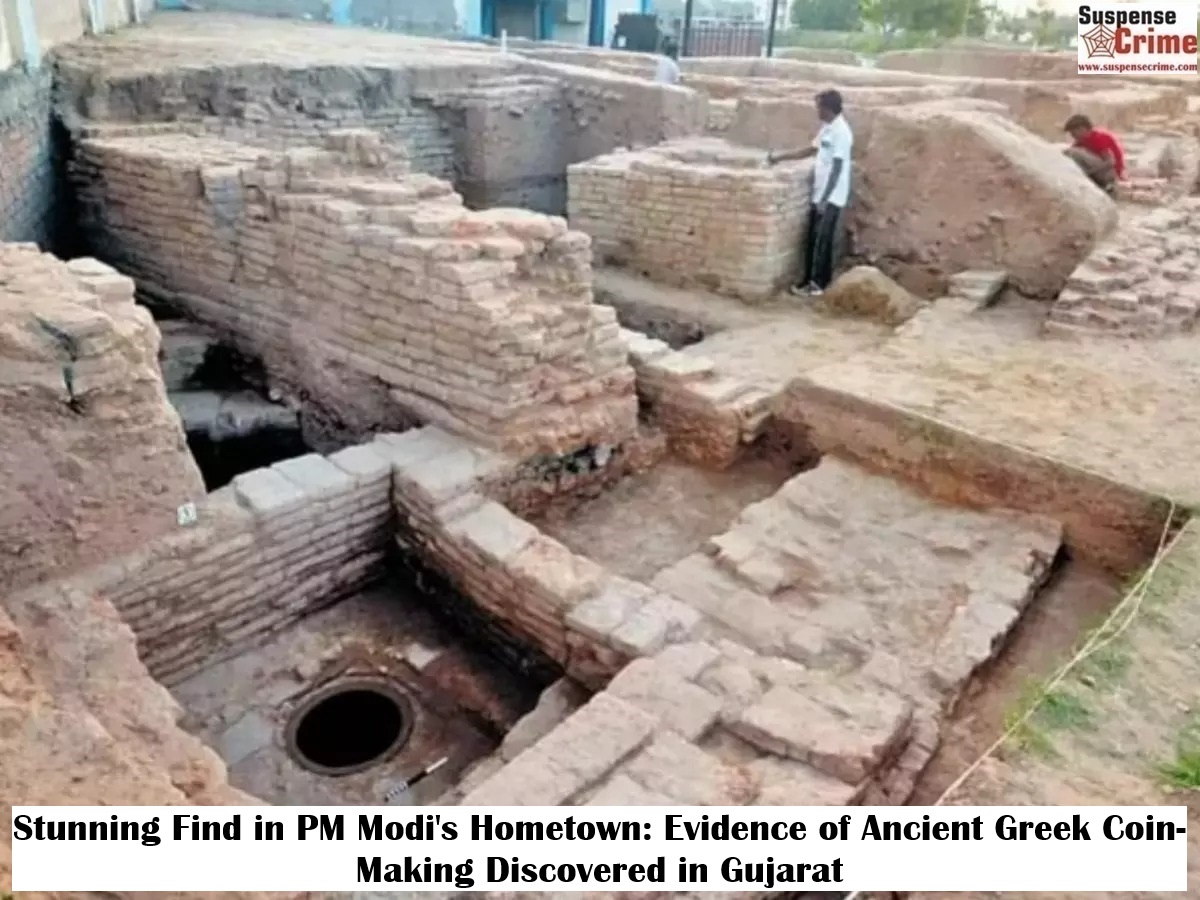
Suspense crime, Digital Desk : In a discovery that could reshape our understanding of ancient Indian trade, archaeologists have unearthed 37 terracotta coin moulds in Vadnagar, Gujarat—the native village of Prime Minister Narendra Modi. This remarkable find provides the first concrete evidence of local production of Indo-Greek coins in the region, suggesting a much deeper economic connection with the Hellenistic world than previously known.
The discovery was made by a team from the Ashutosh Museum of Indian Art at the University of Calcutta. The moulds were designed to create coins for the Indo-Greek king Apollodotus II, who ruled in the northwest part of the Indian subcontinent around 2,200 years ago. While the circulation of Indo-Greek coins in western India was known, this is the first time that the tools for manufacturing them have been found so far south.
According to Professor Susmita Basu Majumdar, who led the exploration, this finding is a "game-changer." It proves that Vadnagar was not just a passive recipient of foreign currency through trade but was an active production hub. The presence of a local mint suggests that the influence of the Indo-Greeks extended far beyond their political borders and that their currency was so trusted and essential for commerce that local authorities began producing imitation versions.
The find adds another significant layer to the rich, multi-layered history of Vadnagar, which has been a site of continuous human settlement for nearly 2,800 years. Recent excavations have already revealed a Buddhist monastery and other artifacts pointing to its past as a bustling center of trade and culture.
This latest discovery solidifies Vadnagar's historical importance as a thriving industrial and trade center that played a crucial role in the vast economic networks connecting ancient India with the wider world.
Read More: Fact vs. Fiction Breaking Down the Rijiju-Rahul Clash Over the US Trade Deal

 Share
Share



